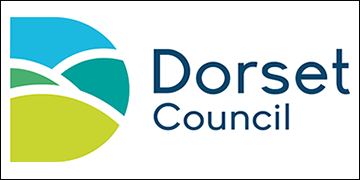A forward-thinking local authority with “mature, established systems,” rated ‘good’ overall by Ofsted as well as being praised for outstanding leadership, has been selected to be a pathfinder for the Families First for Children programme.
Dorset Council is one of three local authorities chosen by the Department for Education to pilot the model outlined in its draft strategy, Stable Homes, Built on Love, issued in February 2023.
The proposals are the government’s response to recommendations from the Independent Review of Children’s Social Care, the Child Safeguarding Practice Review Panel report into Arthur Labinjo-Hughes and Star Hobson’s deaths, and the Competition and Markets Authority review into children’s social care placements.
The reviews concluded that “the current care system is often fragmented, siloed, and struggling to meet the needs of children and families”.
The Stable Homes recommendations being tested by the parthfinders aim to reform children’s social care, “helping children to stay with their families in safe and loving homes, whilst protecting vulnerable children where needed,” and are based on three principles:
- Providing family help through local multidisciplinary teams working with partners to provide effective, tailored support.
- Utilising social workers with greater expertise and experience to support families where child protection is necessary.
- Involving the wider family in decision-making early on.
This means a greater emphasis on family support and early help delivered by multidisciplinary teams supporting families in need, while child protection lead practitioners co-work cases with family support when child protection enquiries are required. This supports continued relationships for families and reduces changes in workers where families might ‘step up’ to child protection for a limited time.
Programme director at Dorset, James Boxer, says: “We have a lot of pre-existing conditions for success, with mature, established systems in place to deliver most of the reforms.”
“There has been a lot of investment in early help, quality assurance, leadership and partnership working. We were already working towards some of the Stable Homes agenda and therefore we are geared up to deliver the reforms at pace,” he adds.
Indeed, Dorset’s last Ofsted inspection, in September 2021, praised the “stable, permanent workforce” and “manageable caseloads”.
“Good work is expected, delivered and celebrated,” said the report.
Lisa Reid, corporate director for quality assurance and safeguarding, says: “We are a forward thinking local authority and have the benefits of strong foundations through locality working, development of family hubs, and increased focus on utilising the skills and experience of our alternatively qualified staff has been a focus for us. Also an accredited apprenticeship in family help is planned.”
Safeguarding Families Together
Dorset introduced its relational Safeguarding Families Together approach in November 2022 in two localities. This approach ensures strong partnership working and will be rolled out across the service in April 2024.
Lisa explains that this model brings together adult practitioners from substance misuse, mental health and domestic abuse services to work alongside children’s social workers and family support to ensure “families receive the right support, when they need it and enabling families to stay together safely”.
“Families have told us ‘you saved my life’ and ‘you helped rebuild my relationship with my son’,” adds Lisa.
Independent evaluations have confirmed the model’s effectiveness, including a reduction of instances of domestic abuse, A&E attendances and police call-outs in the localities where the model has been piloted. Furthermore, risk has been reduced through this partnership approach without needing to always escalate to child protection processes.
The pathfinder work starts in April, and opens up career progression opportunities from the outset – both for Dorset staff, and for new recruits.
Roles include social workers, family help workers, service managers, education psychologists, family group conferencing co-ordinators and youth workers with opportunities for experienced and newly qualified staff.
Learning and development in Dorset
Lisa highlights the strong learning and development in Dorset. “During the assessed and supported year in employment (ASYE), support packages are in place with protected caseloads for NQSWs to grow slowly over the first year with clear guidance around responsibilities to help build experience and skills , with support available at all times.
“It is a safe and supportive environment to learn and ensure NQSWs have the right learning and development as well as problem solving with managers. Career progression towards experienced social worker roles is in place and shadowing opportunities in other teams are available so they understand the child’s journey through our work,” she adds.
“We have an opportunity for further development of our Dorset workforce through a revised role of our PSW, which is currently being advertised and will be integral to the new pathfinder rollout.”

Rachael, advanced practitioner at Dorset. Photo: courtesy of Dorset Council
Advanced practitioner Rachael Deem, who has been with Dorset for 22 years, holds a smaller caseload of more complex cases and spends time supporting and mentoring NQSWs and providing supervision. The role means Rachael has been able to progress while staying close to practice. She has also benefitted from training and flexible working.
“I was supported to work part-time hours when I had children and then take on more hours when I was able to, and I now work flexibly, with a nine-day fortnight,” she adds.
Staff at Dorset can also use satellite offices, work from home, accrue time off in lieu and have support for wellbeing.
Level three social worker Genevieve Buckley, who joined Dorset in 2017 after qualifying, says that you can progress quickly from the ASYE to being a level three social worker if you feel ready, with further opportunities from there.

Genevieve, social worker at Dorset. Photo: courtesy of Dorset Council
Trauma-centered approaches and motivational interviewing training are mandatory, but Genevieve lists a plethora of training she’s undertaken from Achieving Best Evidence to sign language and life story work. Her manager also encouraged her to train as a practice educator.
“You are actively encouraged to develop your skillset. The culture comes from the top and I never feel like I can’t ask a colleague or my manager for advice. I could work as an agency social worker and earn more money but my colleagues and managers are very supportive and the ethos and cohesion of the team is important,” she adds.
There is real pride and excitement about the pathfinder, which will also shape and lead national change and, Lisa adds, “the right team is in place to safely test this”.
James concludes: “For those people wanting to shape the long-term future of children’s social care nationally, Dorset is the place to work. This pathfinder is new, exciting and pioneering. Dorset is a financially stable local authority and this pathfinder enables staff to join us, bring ideas and initiatives so we can be creative working with our families.”




 Facebook
Facebook X
X LinkedIn
LinkedIn Instagram
Instagram